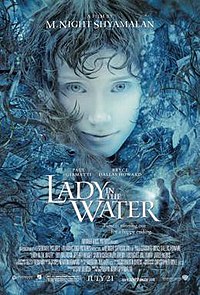 I'm allergic to hype, so I approached "Lust, Caution" with caution, of course (not to mention I've never been a fan of Eileen Chang). And time and again, my cautious attitude has proven me right. The first half of the film, especially the flashback, is dull and boring. The foolhardiness of the students and the pathos of their failed assassination attempt/spy game are not affecting at all, much of it due to the horrible performance of the actors and pedestrian direction (was it done by an incompetent second unit?) The uninspiring and maladroit art department is also to blame, which continues to plague the film with a sense of shoddiness in the second half. Besides, there appears to be a complete absence of social and political tension of the time period, leaving a gaping hole in the narrative There's simply not enough to anchor the characters in this particular era. The flashback could have been tastefully rendered in a monologue or by some clever editing.
I'm allergic to hype, so I approached "Lust, Caution" with caution, of course (not to mention I've never been a fan of Eileen Chang). And time and again, my cautious attitude has proven me right. The first half of the film, especially the flashback, is dull and boring. The foolhardiness of the students and the pathos of their failed assassination attempt/spy game are not affecting at all, much of it due to the horrible performance of the actors and pedestrian direction (was it done by an incompetent second unit?) The uninspiring and maladroit art department is also to blame, which continues to plague the film with a sense of shoddiness in the second half. Besides, there appears to be a complete absence of social and political tension of the time period, leaving a gaping hole in the narrative There's simply not enough to anchor the characters in this particular era. The flashback could have been tastefully rendered in a monologue or by some clever editing.Fortunately the film picks up in the second half. The relationship between the two leads takes an interesting turn as the two souls entwine and eventually being marooned in the cesspool of espionage and simmering sexual craving. The buzz surrounding this film is all about the overt, kinky sex sequences which, to my surprise, are extremely well directed and "choreographed" (they're really pushing the envelop in terms of gymnastic sexual positions and putting karmasutra to shame. There's no telling where Mr Yee's limbs begin and Mrs Mai's end, no kidding). We see two people wrestle and battle with their inner demons, vie for dominance in the physical and emotional levels of being, and tread a fine line between love and hate, loyalty and betrayal, luscious intoxication and maddening sober. The distortion of moral and ethic principles by the sheer gravity of lust underpins the absurdity of human conditions and the ambiguity of human experience. My applause to Ang Lee. Tong Leung's performance is very uneven, most of the time marred by his unconvincing Putonghua accent and a small repertoire of expressions. His character is also in desperate need of more screen time off the bed. If you ask me, he has a very narrow range. Lee-Hom Wang is just bad casting, pure and simple. Wei Tang is a bit stiff at times, but overall she's adequate and shows some promise. If only had Ang Lee cut the first half 30 minutes shorter, portrayed wartime China in greater details and developed the two leading characters more fully, "Lust, Caution" could have been another bullet to his impressive resume. It keeps me wondering: What would Wong Kai Wei have done differently?






 Lady in the Water is a fairytale through and through. Sorry, no more startling plot twists - what you see is exacty what you get. The story defies logic, it's unreal, and it's absoultely otherworldly or just plain goofy. A savior of the purest intend is here to rescue humanity from utter destruction by inspiring a prophet? A guild, a guardian, a healer and a symbolist are aligned to assist her? Little do we remember it's all the stuff that fairytales and myths are made of (Joseph Campbell will have a field day with this one). Adults find it compulsory to act like one - i.e. to be rational at all time, sneering at the sight of any out-of-the-ordinary propositions and refuse to so much as comprehend anything that are ostensibly childish or freakishly quirky. It's almost like the lost of innocence is a blessing! What have become of us?!
Lady in the Water is a fairytale through and through. Sorry, no more startling plot twists - what you see is exacty what you get. The story defies logic, it's unreal, and it's absoultely otherworldly or just plain goofy. A savior of the purest intend is here to rescue humanity from utter destruction by inspiring a prophet? A guild, a guardian, a healer and a symbolist are aligned to assist her? Little do we remember it's all the stuff that fairytales and myths are made of (Joseph Campbell will have a field day with this one). Adults find it compulsory to act like one - i.e. to be rational at all time, sneering at the sight of any out-of-the-ordinary propositions and refuse to so much as comprehend anything that are ostensibly childish or freakishly quirky. It's almost like the lost of innocence is a blessing! What have become of us?!